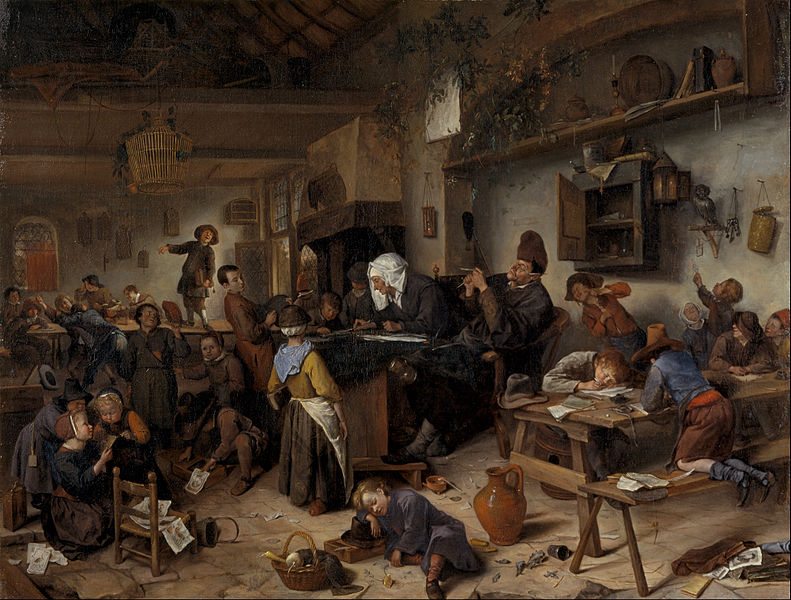Education is like an enormous oceanic ship where no one can change the course quickly, even if everyone can see that they are heading for an iceberg. Enough politicians have been burned in Slovakia who have taken command, announced a new course, and started turning the steering wheel, but nothing happened to the ship. I know a few seasoned sailors who have already resignedly declared education unreformable. When you can’t change the ship’s course, hand out lifeboats.
I would not throw in the towel yet. There is one type of reform that has not yet been tried here but has been well experienced abroad. Instead of replacing the captain of the ship and turning the steering wheel one way or the other, this type of reform proposes giving life jackets and lifeboats to the crew. Mind you, this is not a resignation to educating children; it is a resignation to helping the education system from the top. All we need to do to help children is to have enough life jackets and boats for everybody.
Let us now leave the world of metaphors and look at what this means in the specific practice of education. First of all, it means leaving behind the press reforms, where the Minister stands in front of the cameras and starts explaining how the content of education will be changed, or the division into grades, or where interactive whiteboards will be bought, or where assistants will be paid for.
Instead, legislative action will allow for a new type of autonomous school to emerge, free from the anchor of state regulation in exchange for accountability for pupil outcomes. And along with that, it will make it easier to evacuate people from the sinking ship by closing or taking over failing schools from the hands of public school operators.
Around the world, this process is most often managed by some middle-level of the public sector. That is to say, not the school founders themselves or the central government. But rather a regional government or a new type of school district that specializes in authorizing innovative schools with a good track record or quality credentials. And at the same time, to take over low-quality, sleepy public schools where students are not getting a basic level of education. In Slovakia, it could be called, for example, the School District of autonomous schools.
This district would then negotiate contracts and terms for the creation of a new school or the takeover of an old public school by new management. Such a contract is abroad called a charter and contains explicit outcomes that the new school or management agrees to achieve.
In addition to the basic level of literacy of the students, verified by some form of test, it usually includes other criteria such as the satisfaction of parents and students with various aspects of the school, the proportion of students who successfully complete school and enter high school and later college, or professional visits by educational experts, etc.
These results are monitored on an annual basis, and then every 5 to 7 years, the original contract is reviewed. If all goes according to plan, the school is allowed to operate each year, and the contract is renewed at the end of the period. If results are not being delivered, the school is advised of the shortcomings, and if they are not corrected within the next few years, the contract with the school is terminated.
Such reform has two advantages. First, it keeps adults in autonomous schools engaged in the workforce. Indeed, their professional destiny is directly dependent on the results they achieve with children. They can’t rest on their laurels as in traditional schools, where failure often becomes the norm. Or the failure even becomes attributed to the children themselves – it is they who are failing the school, not the school failing their education.
Secondly, it’s a steadily improving mix of high-quality and low-quality schools. As the system makes it easier for poor-quality schools to disappear or to be taken over, and on the other hand, easier for new autonomous schools to enter, the proportion of quality schools will naturally increase over the years at the expense of poor-quality schools.
Such a reform does not promise to improve all schools in leaps in a single moment. It is not a miracle recipe. It is an escape route for children who are neglected by today’s education system. And it is a green meadow for all active and smart people who have a vision of what education in the 21st century should look like and the will to make it happen.
The article was originally published in Slovak at: https://www.tyzden.sk/spolocnost/95417/robert-chovanculiak-ked-nejde-zmenit-kurz-lode-rozdajte-zachranne-clny/
Continue exploring:
Positive Read of Bulgaria’s Parliamentary Crisis
Reinventing Family Policies in CEE: 4liberty.eu Review No. 18 Now Available Online



